Advice
Mental preparation for riding
27 February 2023
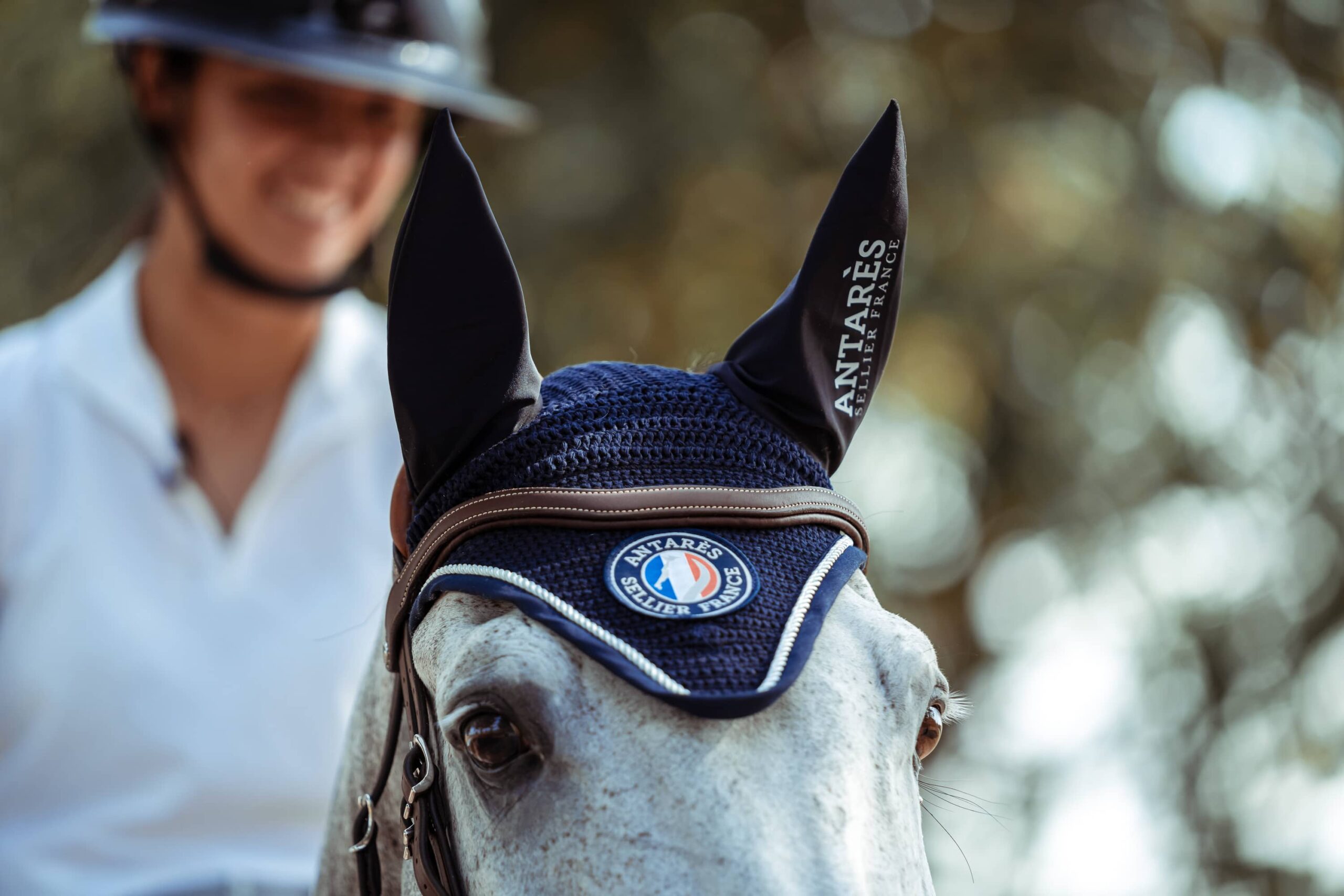
Advice
27 February 2023

In the previous article, Maxime Chataignier told us about the mental preparation for a rider. Drawing on practical examples, he gave us tips to manage stress when competing but a horse also has it own way of working. and you’ve got to control its emotions to succeed when you compete. Mental preparation in riding is therefore essential to restrict emotional cross-contamination between horse and rider. Maxime explains how a breathing exercise done together can calm both horse and rider. He also gives us tips on the right attitude to have in mind if results don’t meet expectations. Mental preparation in riding is something you work on before and after a competition.
We’ve talked about this at length with Andy. We’re doing the same job but he treats horses and I deal with riders. What’s really interesting is that there is emotional cross-contamination between the two.
I introduced a breathing exercise for riders to deal with their emotions in the paddock. It addresses 4 different criteria:
Once I introduced the breathing exercise it was a great success. Lots of people have said to me, “It’s amazing how it relaxes my horse too” although that aspect was actually a bit unexpected. It’s the 5th element which has been added to the brief and it has a beneficial effect on horses.
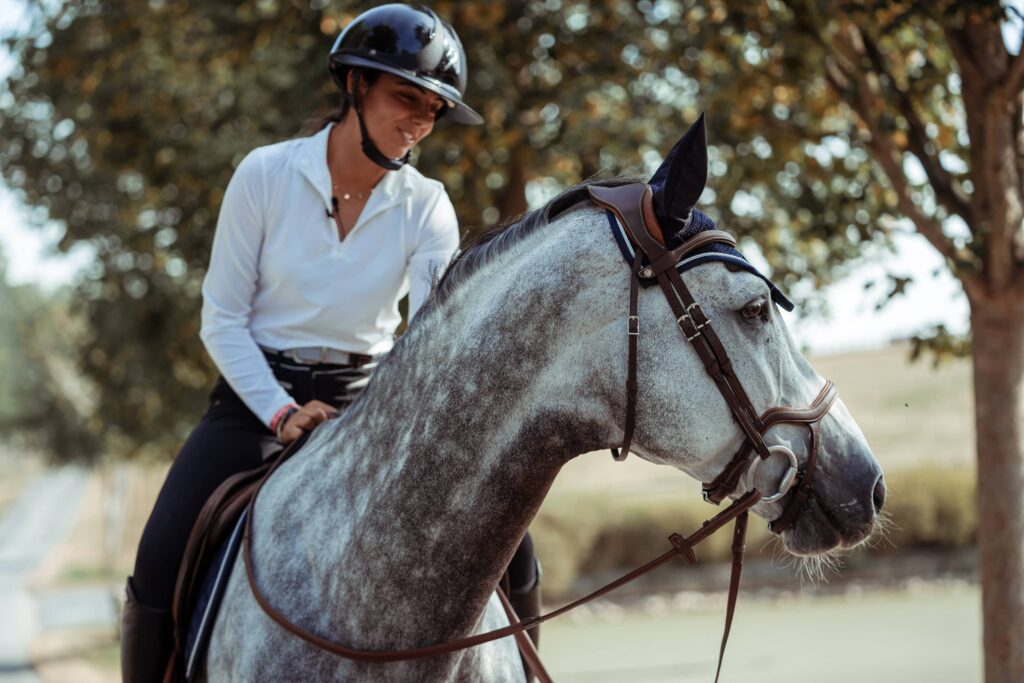
I don’t come from a riding background and I had to work out why this method worked without really knowing.
So, I did a bit of research on equine coaching and therapy and I found out that horses can calm down people who are stressed out or who are battling certain internal conflicts. Then I wondered, “could this power work in the opposite direction to calm a horse?” Working with Andy cleared up quite a few mysteries insomuch as we do indeed have this dual responsibility.
A horse doesn’t have a frontal lobe, so it can’t analyse and so reacts on impulse by telling itself “Danger, I’m scared”. By contrast, riders can analyse and reason. So, we’ve got this dual responsibility to manage our emotions and theirs too.
You’ve got to say to yourself, “If I focus on controlling my emotions, my horse won’t pick up on them”.
Another thing that we don’t often think about is that a horse can feel a fly landing on its skin. It can sense tiny things so we can make it stressed with the tension in our muscles. It can feel the change in a rider’s blood pressure through the femoral arteries. A horse soaks up what is happening to its rider, it feels every little bit of our stress.
The key is not to get caught in a vicious circle saying, “My horse is tense so that’s stressing me”. Most of the time, it’s us who are making our horses tense and stressed.
The second part of my answer is about connecting with your horse so that it can’t focus on what makes it scared. You can’t deal with all possible and conceivable situations with a horse, so there’s always going to be something different from what you’re used to. You’ve just got to counter it to keep the horse with you.
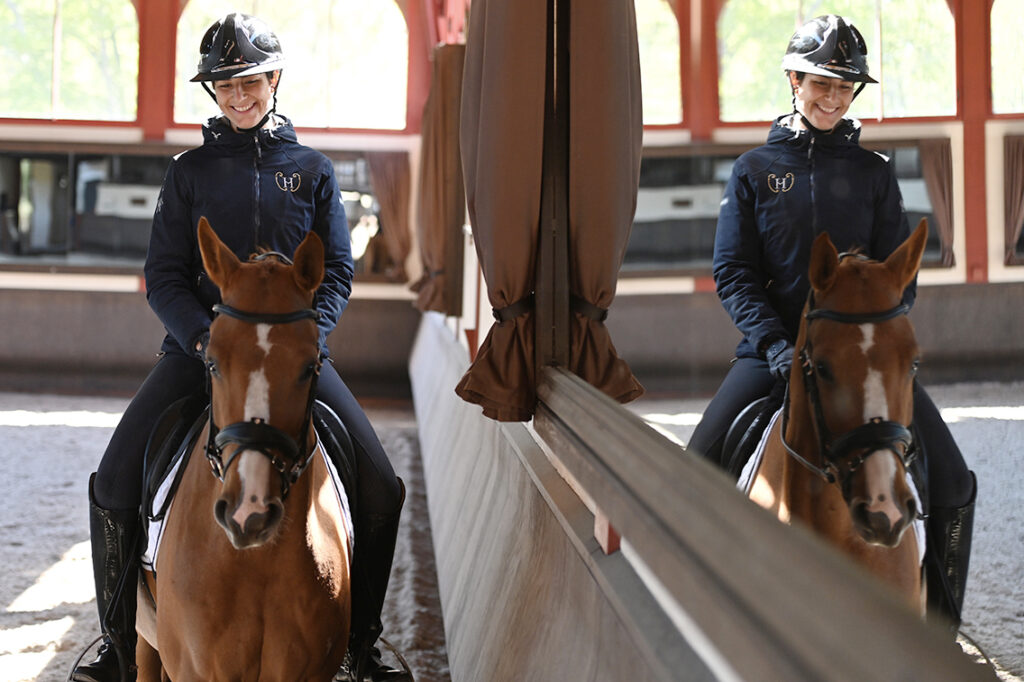
If a rider can’t control their own emotions, they won’t be able to handle them for the horse and rider duo. You should try not to act as a sponge if the horse’s emotions start racing. The rider is the beacon that shines in the dark. If the horse senses that its rider is stressed, its because there’s a reason to be nervous. If you’re calm in the saddle, you are already exerting some control on the situation.
In riding, the level of control over how well you perform is relatively tenuous compared, for instance, to other sports such as timed events in swimming or athletics. Imagine, you shatter your best time one day and then you compete the next day. Unless you fall down the stairs, logically, it should all go well. In any event, you’re likely to be in a confident mood.
A rider can put in a clear round but when they return half an hour later there’s no saying that they’ll jump another clear round. So, there are many unknowns, things that we don’t necessarily control.
It’s funny to look at the statistics of the best horse and rider combinations. If you do, you’ll see that the world’s best duos have rather underwhelming stats compared to other sports.
Take tennis, for example. For years now, five players have won most of the tournaments. In riding, that doesn’t always happen. On that basis, it’s not that there’s a certain inevitability in accepting the fruits of your efforts but you do need to be able to detach yourself from the result, per se.
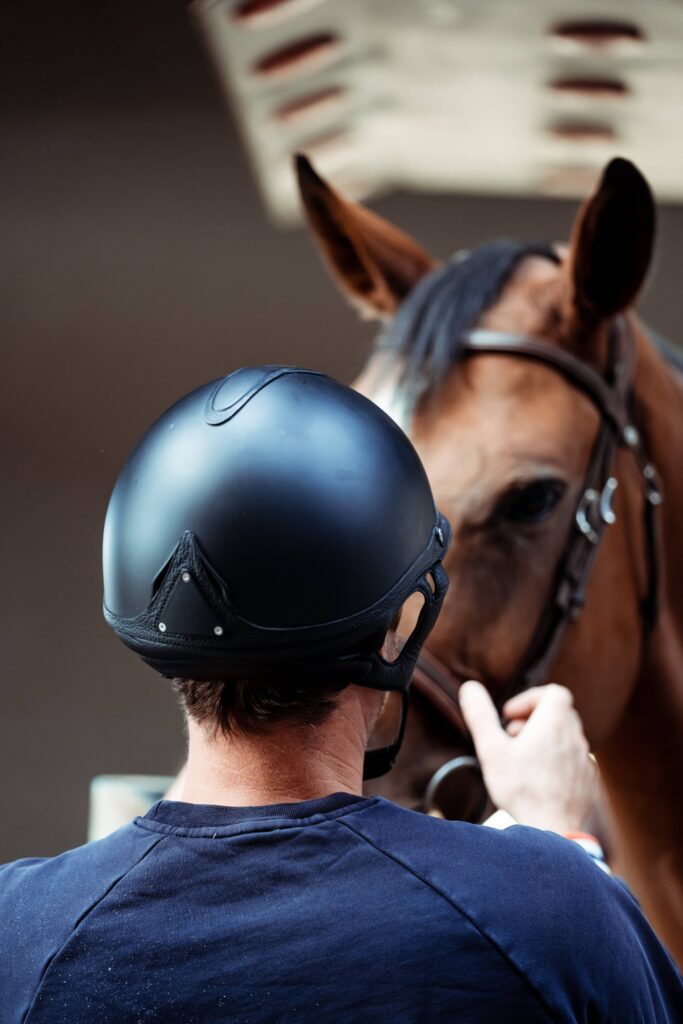
I always advise riders to focus on what they’ve gained from a competition, not the result. I say that as you may have horses that are still developing, or be riding shifts on different horses. There might be times when you have to do a more in-depth analysis rather than simply, “I won or I lost”. Riding doesn’t work like that (the latter). Just as there is perfection in nature, riding is a sport that people can practice for a long time. This also helps to relieve some pressure. My sport was sprinting and I knew my career would last roughly ten years, so when I messed up in a competition, it was potentially 10% of my career down the drain.
You’ve always got to have targets, be daring and ambitious, but you shouldn’t build your confidence solely on results. There’s a large part of your performance that you can’t control and the result illustrates your performance against that of your competitors.
If it goes right, you’ve had your best-ever round, the horse is great and getting even better and everything is fine. But, there may be lots of other riders also giving it their all at the event, so the outcome won’t be the same. There are loads of things that you can’t control.
That’s why it’s important to analyse things where you set progress milestones for your technical skills, posture and behaviour, etc. If, in addition to this, you get some good results then so much the better. You mustn’t assess things from an “I won/I lost” mindset but rather, “Ok, what did I learn from today? Did I make progress? Did I understand various things? Did me and my horse have fun out there? What did I learn? What am I going to do next time?”
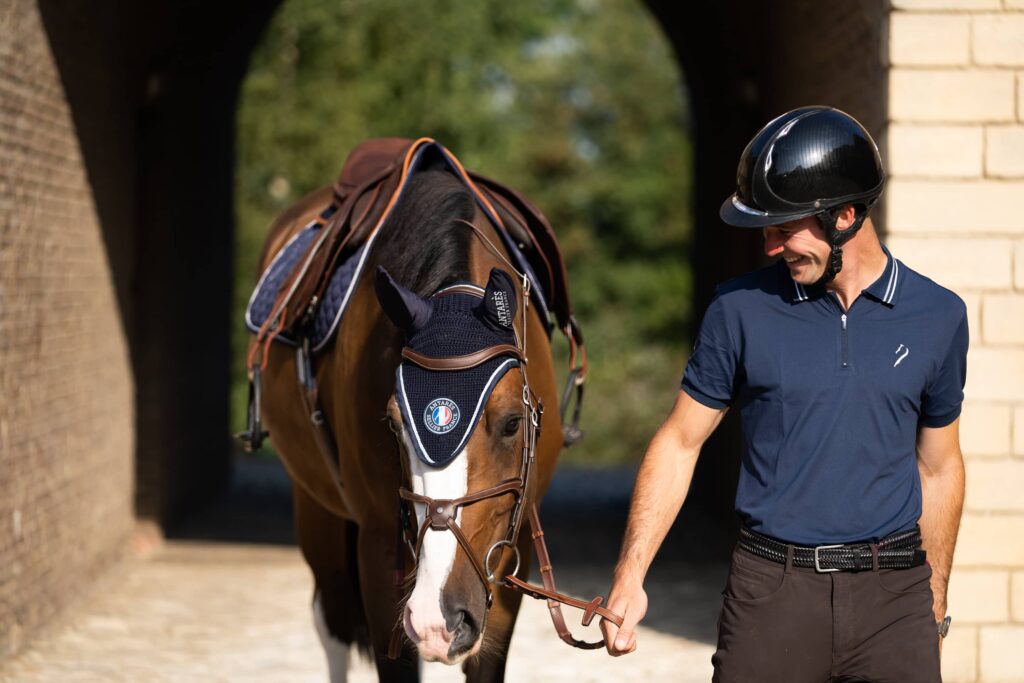
If you want to have a long career in riding, you’ve got no other choice but to think like that. That’s what I like about the top riders who have a wealth of experience. They can put their results and performances into perspective. They’ve competed in many elite events and sometimes it works, sometimes it doesn’t. With experience comes a certain degree of wisdom. Top riders are less elated when they win and avoid feeling at rock bottom when they lose.
I think that applies to all sports but especially to riding when you must contend with a component over which you have little control. I always think of animals but Andy also gave me the example of surfing, as you have to contend with nature. If nature gives you the right wave and you take it properly and all the stars are aligned, you might score some points and become world champion. There might also be a better surfer starting after you but who doesn’t get the right wave. The moment is gone and he/she takes an average wave, so ultimately its wasn’t their day. That doesn’t mean that you’re the tops and they are rubbish.
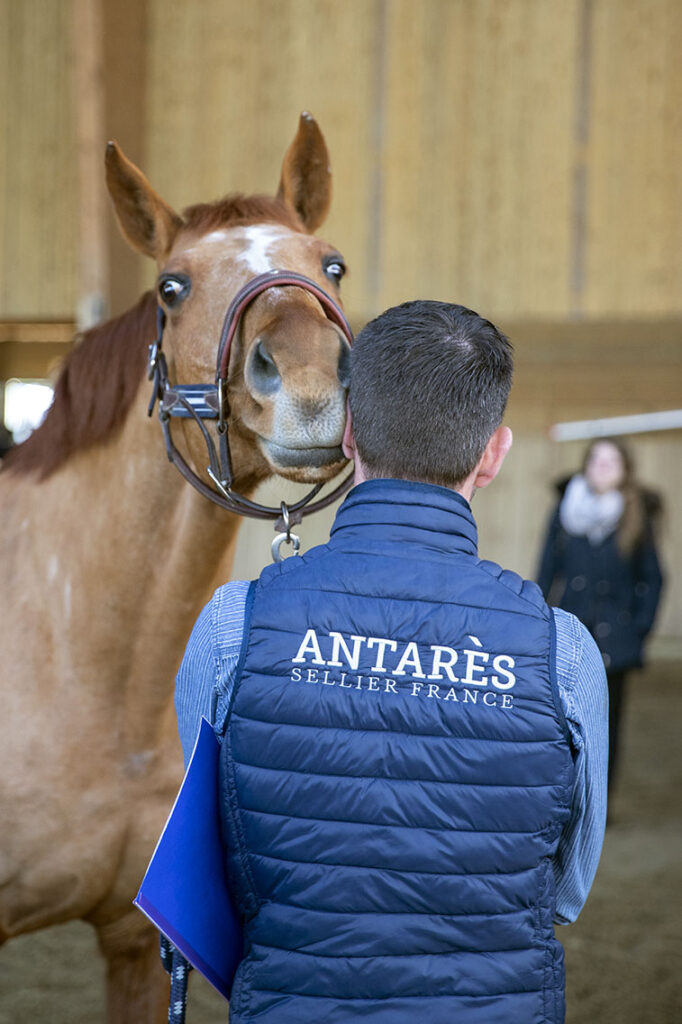
I’ll finish with this piece of advice. Ask yourself this: Was I good or terrible?
Sometimes, you tell yourself, “Today, I didn’t win. I just scored 4 stupid points. But we rode well and enjoyed ourselves, so we’re heading in the right direction”.
The key is to ride well and build for the long term.
Many thanks to Maxime for taking the time to tell us about the importance of mental preparation in riding. If you want to develop your mental preparation, Maxime also offers training programmes for athletes, sports mentoring and team building.